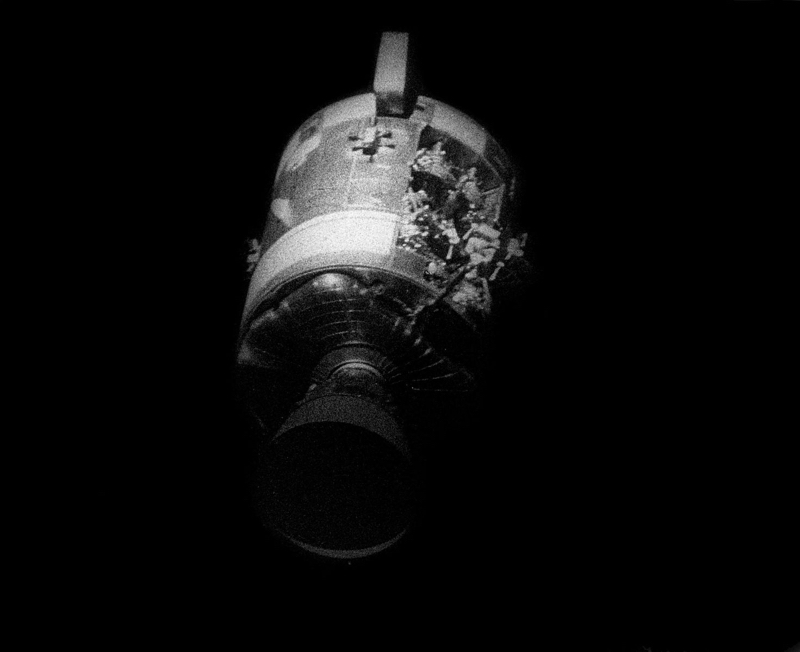Failure used to be a thing to avoid. The last thing you’d ever want to do is fail — especially at business. This fear of failure was motivation. Failure was hard to admit and harder to recover from mostly because of the way we interpret the perception of others on our failure. It is an emotion and intellectual mind game.
But that changed.
Now failure is looked at as a badge of honour. A thing that happens to everyone. A stage in an entrepreneur’s life that, if not present, means something worse than failure itself. We don’t trust people that don’t have at least a small vice (mine is coffee and Sour Kids candy) and the same can be said for those that haven’t failed at a business.
When I set out to build by first company my fear at the time wasn’t failure, it was telling people what I was doing. It was at a time when many looked at entrepreneurship as a choice of last resort. Can’t find a job? Be an entrepreneur. My fear was the reaction that I would receive from my friends and family. The rolling of the eyes. The thousand reasons why it wouldn’t work. The negativity kept me silently plugging away, telling few people, just so I wouldn’t hear them talk about failure. I wouldn’t let them get it in my head that my efforts were in vain. The strength of an entrepreneur is a blind belief in their core that the idea they have set upon needs to be built and they are the only one to do it. There is a determination that this brings to succeed at all costs.

We’ve all heard the heroic stories of entrepreneurs using every means necessary to make their dreams a reality. Elon Musk had enough money to launch 3 rockets when he built SpaceX to commercialize space. Each of those rockets exploded but here he stands, about to send people to Mars. These are the legends that we hold dear as we build our businesses.
There are many stories like Musk’s being told in boardrooms and schools everywhere. The story behind the story is not. Musk’s rockets failed but each made it closer to its goal. The first blew up on the launch pad. The second rocket almost made it to orbit. The third made it but collided with itself during a maneuver in orbit. Lessons were learned. Progress was made. He would do what was thought to be impossible on the very next launch and pave the way for his vision. You can’t fail fast in business. You need to learn fast from your failures.
Unfortunately the acceptance of failure has swung too far to the norm and this limits the learning that is needed in order to arm the revolutionaries. It’s dangerous to think about failure as a target. If that is your target what you are embarking on isn’t a business.
The misinterpretation of failing fast is what’s alarming. It does not mean you try out a business and hope it works. There are no lessons in failure if you fail too fast and too soon. That’s just giving up. We have encouraged this generation of entrepreneurs to fail fast and I think this has been interpreted as give up fast and move on.
Starting a business is not an easy task. There is very little joy in the early days. It is isolating and stressful no matter how many times you do it. You spend most of your time building something others can’t see. You are surrounded by your own self doubt and this leads to many internal conversations about giving up. Here’s where lessons are learned and to give up too soon is to deprive yourself of those lessons.
So why are we now conditioned to fail fast?
Somewhere in the early Internet surge there was a period of hyper entrepreneurialism that looked like innovation. Companies in the last quarter of the 20th century had built infrastructure and protocols that enabled the commercialization of the Internet. Because of true innovation and invention we had readily available computer hardware on all our desks, network connections and the emergence of higher speed Internet to the home and office. It was this combination that moved many to build the layers on top of it all to make commerce and connection happen over the Internet. The innovators had laid the pipe, the builders started building and the Internet boom was born.
What that time did for us was open our imagination. New business models were obvious but just out of reach. The Internet became dial tone. Entrepreneurship went from having to build the technology to just manipulating it. Ideas were everywhere but execution became the differentiator.
It’s easy to look back at that time and be critical of some of the ideas that emerged but it was a new time and entrepreneurs were testing — as they always do. The greatest fallacy of that time was that anyone with a screen and an internet connection could build a business.
This simply wasn’t the case.
The companies that truly innovated, who stuck it out and were forced to rethink their models, survived. The rest died quickly like a meteor slamming into Mars. One moment everything was ok, the next they were charred remains. Those entrepreneurs were testing a new moment and there is always carnage when the economy shifts from an old way to a new way. It is hard to build a 100 year company when there are multiple seismic upheavals during that time. The lesson is that you adjust or you die.
Adjust or die.
So why didn’t those companies adjust? Because they couldn’t. They weren’t real businesses. They had been formed on a flawed principle of getting eyeballs instead of getting paying customers. When the funding collapsed they were already on a trajectory that couldn’t be altered in time to bring them to safety. Many of the biggest failures at that time had eaten hundreds of millions of dollars of investment. The world had digested billions and the visible return on investment was a sock puppet and Amazon. But if we look a little closer, there were lessons learned by those entrepreneurs that set them up for the next boom and they would be smarter.
The lessons of the dotcom era ended up being the currency. And to avoid having the same thing happen again, it became harder and harder to find investment and when you did, they were smaller and smaller amounts. The investments were based on real milestones and real disruption because investors were interested in building real sustainable businesses. In 1999 disrupting pet stores by moving them online was a business model. By 2010 enabling every shop to get online and sell their products globally was starting to be the norm. By 2020 if a store doesn’t have a window on the Internet we question its existence. In 20 years we have gone from disrupting pet stores (failure) to disrupting retail.
Learn fast
I don’t know any other part of life that subscribes to the “fail fast” mantra. Do you try to fail fast at marriage? Family? Do you fail fast in construction or medicine? There are failures in each but those that don’t learn fast from the failures are meant to repeat them. Why doesn’t this translate to business?
Maybe our visions became smaller. The lift to get ideas off the ground doesn’t require as much effort today. You don’t need to worry about computing power, connectivity or even understanding a programming language. You can build something quickly to test, run customer acquisition initiatives for cheap and build a business in a day. This lack of ownership of the platform often means there isn’t a great commitment. There may be an initial surge of energy towards the idea but when that is gone, so is the idea.
To build a great business it must solve a great problem. Most of the time that problem is not as obvious as we think. Entrepreneurs may start down a road they think is right but realize they were way off the mark and adjust. Companies that subscribe to the fail fast ethos take this time to give up and move to the next business idea. If you can give up on the idea, if you can legitimately fail fast you have chosen the wrong idea to begin with.
The wrong path.

To succeed in failing fast means that you didn’t do your homework. It means the business never had a chance because it wasn’t a real business to begin with. There is no room for failure if the prep is done and mission is clear. It’s ridiculous to think that NASA would have left the astronauts of Apollo 13 floating in space. The mission was clear, the path was laid out but something went wrong. They didn’t give up and fail quickly, they dug in and solved the problem. During this whole process there were contingency plans — someone had thought of the LEM as a safety boat years before it was necessary to use it. They planned for success, learned from failure and brought the astronauts home safely.
Failure is not something to fear. It’s bound to happen to all of us. It has a high probability of happening to most businesses. It is for this reason that now more than ever, entrepreneurs need to plan for it ahead of time by learning quickly on how to overcome those challenges. Perseverance is the single most important trait for an entrepreneur once an idea has been fully vetted.
Don’t start something with the focus on failing fast. Learn fast and succeed.
